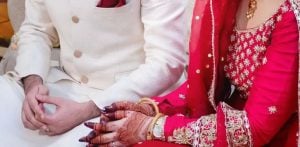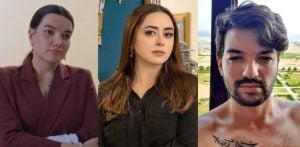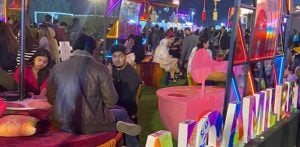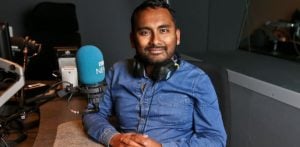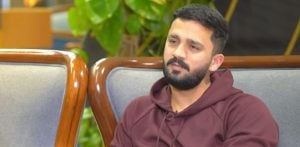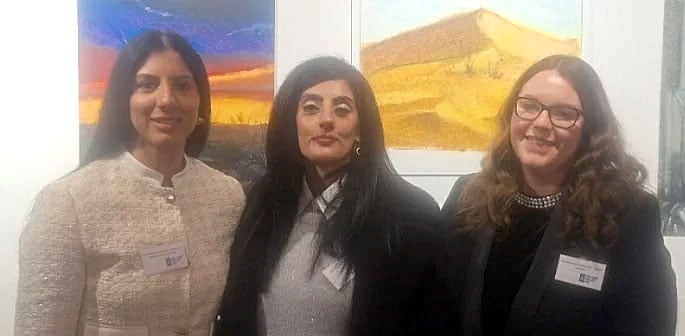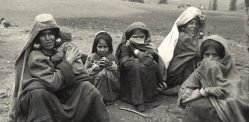“I didn't feel seen or heard"
Muslim and non-white women’s experiences of the criminal justice system (CJS) often remain in the shadows.
Yet Asian and Muslim women who have been to prison can face acute stigma, inequality and challenges from the onset of arrest to after release.
The documentary Inside Out: Muslim Women in Prison, premiered in London on December 10, 2024, highlights women’s lived experiences and the need for systemic change.
It also stresses the necessity for support services and the CJS to be culturally nuanced.
The project has served as an essential platform for Muslim women in prison to voice their experiences.
The documentary was made by a team led by Dr Sofia Buncy, founder of the Bradford-based Muslim Women in Prison Project (MWIP).
Dr Buncy, a British Pakistani, has been a trailblazer, working tirelessly in Bradford to support Muslim women prisoners.
She founded MWIP in 2013 and has been part of Bradford’s Khidmat Centres for eight years.
MWIP is the only project of its type that is focused on supporting Muslim women back into the community.
Dr Buncy said: “Myself and the team at the MWIP have been on the journey of centring the many difficult experiences of Muslim women involved in the CJS and the challenges they face for many years.
“When we started this journey in 2013, we were absolutely astounded by the invisibility around this subject matter and the absence of any recognition of this group of women in our own community, the CJS, academia and policy work.”
The MWIP team had “no blueprint” to follow, instead, they created one.
Moreover, Dr Buncy said they needed “a die-hard attitude and staying power” while “not being afraid” due to socio-cultural taboos.
Women experience a greater likelihood of imprisonment than men for first offences and non-violent offences. They have higher rates of remand and poorer outcomes on release.
The disadvantages all women face within the CJS are heightened for South Asian and other non-white women.
Furthermore, Asian and Muslim women may experience particularly acute stigma from their communities.
Such stigma can lead to many women having to relocate upon release.
For instance, Asian and Muslim women encounter societal taboos upon release from prison that their male counterparts do not. This can result in them not being able to return to their homes.
Also, across the country, there are substantial gaps in the service provision within the CJS and elsewhere to support Muslim and non-White women released from prison.
Neena*, a mother of two, highlighted that she moved to Bradford when she was released for two key reasons.
Firstly, it was a space where she found a community that understood and did not judge.
Secondly, Bradford was where Neena could gain Dr Buncy and the Khidmat Centres’ expert support daily. Support that did not exist elsewhere.
Women’s Experiences & Speaking Out
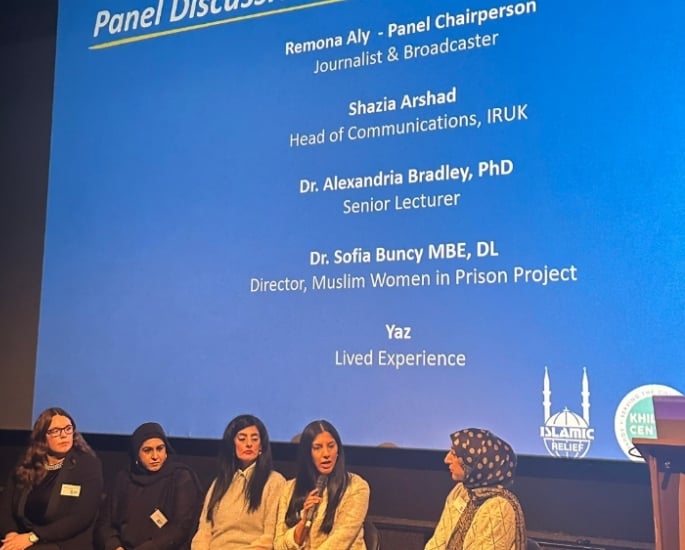
British Pakistani Yaz, who went to prison and now works within the probation system, participated in the documentary.
Yaz utilised her lived experiences of the CJS to advocate for change and told DESIblitz:
“Not being able to talk prevents women from getting help. The families don’t like it, and even my mum was like, ‘Oh no, don’t tell anybody, don’t speak to anybody’.
“I had to educate her on that and say, ‘Mum, no, we need to talk. We need to show that it’s not about embarrassing anyone but about educating. That’s how support can be there’.
“If you keep hiding it away, how will anyone know anything?
“Daughters, nieces, sisters and mothers could go to prison; how is anyone going to support them if we don’t talk and share?
“Educating first and second-generation Asians and Muslims is needed; none of us were born criminals.”
“A lot of these offences, there’s a man’s hand behind it, whether it’s the woman taking the blame for him or something else.”
Yaz is determined to help Asian and Muslim women. Sharing her experiences is about supporting other women and actively pushing for structural change in the CJS.
She emphasised that issues of racism and Islamophobia “will always be there, but changes can be made”.
For Yaz, changes could aid in preventing the trauma that Asian and Muslim women may experience within the CJS.
Watch the Documentary Trailer
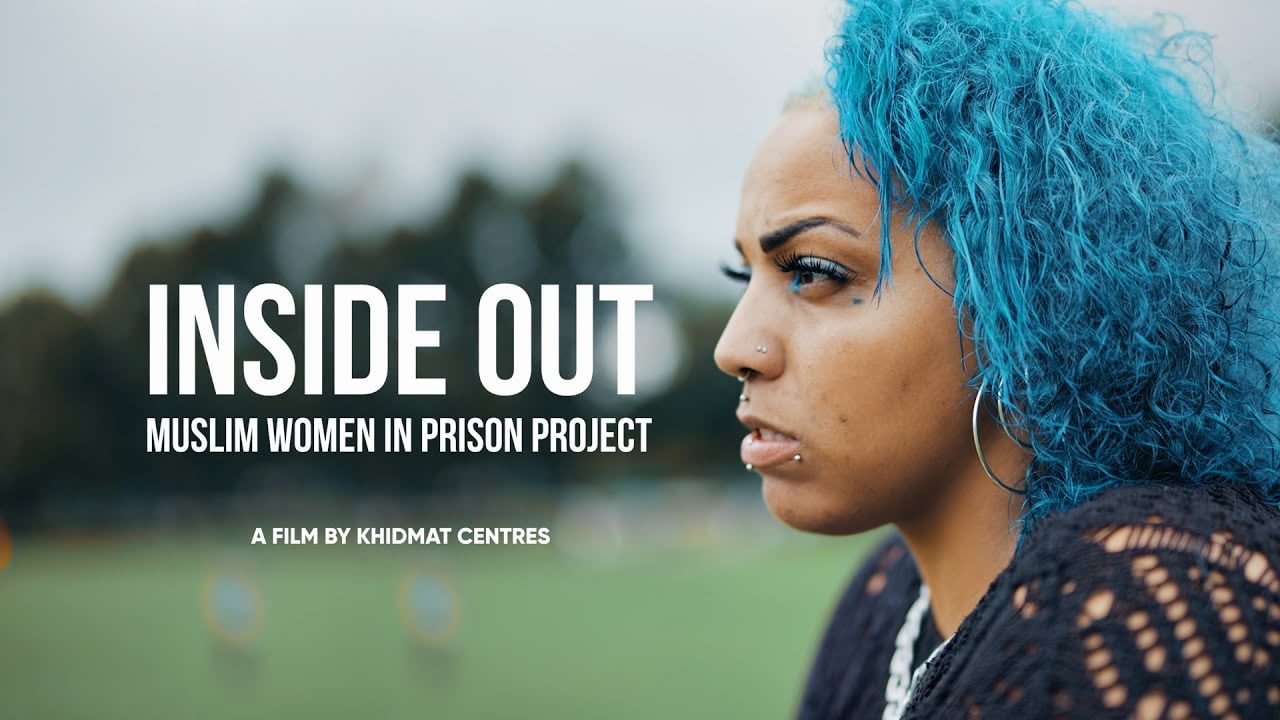
Moreover, Neena found that the system had no awareness of the needs of a Muslim woman:
“I’m not somebody who thought they would go to prison. I wasn’t even aware there was a women’s prison.
“Looking back, I was very fortunate. I had a really good upbringing; I came from a good family and wasn’t short of anything.
“I had a very free life. I went to a Roman Catholic school. I went to university. After university, I went backpacking around Europe.
“I never thought I would end up inside, but sometimes life throws a curve ball.
“Up until I met Sofia, I didn’t feel seen or heard. Maybe it’s the way I dressed, covering my head and body.
“Many of the officers assumed I didn’t speak English; I didn’t need help. Just because I didn’t have a drug or alcohol addiction or I was quiet doesn’t mean I didn’t need help.
“You’re pretty much left to your own devices in there.
“What they didn’t understand was that I was a young mum, and I had a two-and-a-half-month baby on the outside.
“And I had another one that was 18 months. Nobody told me that my two-and-a-half-month-old baby could come inside with me. That there was a mother and baby facility within the prison.
“To this day, I can’t shake off the guilt of the years I’ve lost without my children.
“I just can’t shake it off. They still bring it up with me. My son sometimes says, ‘Mum, when I was little, you weren’t there for me, but gran was, you weren’t’. It didn’t have to be that way.
“[…] I just wasn’t told what my rights were. The list is so long. […] When I first got to prison, for many months, I prayed on a towel.
“Nobody told me about the chaplaincy or that I was entitled to a prayer mat.”
Neena’s words highlight the need for culturally nuanced support and understanding within the CJS.
Her words also raise the question: Is the current prison system the best course of action?
Depending on the offence, should there be alternatives to mitigate trauma for all and possibly aid in rehabilitation?
The Idea of Collective Social Responsibility & Collaboration
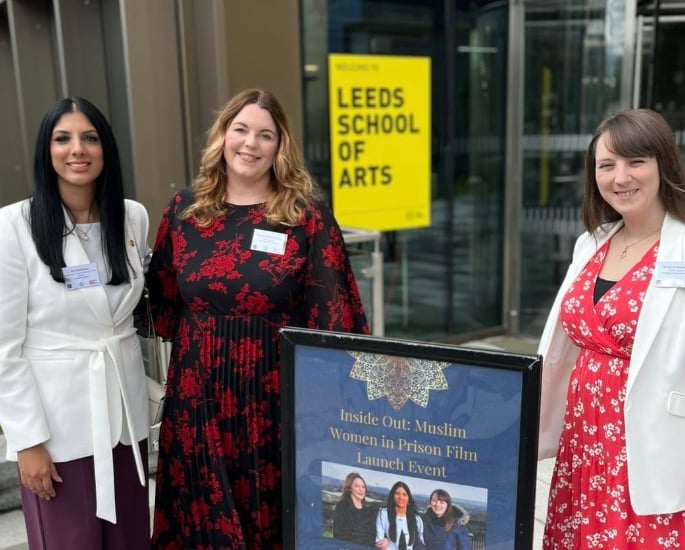
The launch also spotlighted the decisive role that organisations in the voluntary and community sector (VCS) play in Britain in tackling taboo subjects and supporting communities.
The event underscored the significance of cross-sector collaboration, utilising research to increase awareness and drive structural changes.
Dr Buncy and her colleagues, including Ishtiaq Ahmed, Dr Alexandria Bradley, and Dr Sarah Goodwin, are committed to supporting and bringing visibility to Muslim women’s lived experiences.
There was a strong sense of community responsibility and an emphasis on collaboration to ensure that change occurs and the voices of those with lived experience are heard.
Islamic Relief UK (IRUK) hosted the launch, funded through its domestic funding strand, ‘Empowering Women’. They aim to provide further support to the project.
Shazia Arshad, Head of Communications at IRUK, stated:
“The Inside Out film is really interesting because it talks a lot about the institutional challenges facing Muslim women.
“And what we know is institutionalised lack of awareness around Muslim women, and the Muslim community has had an impact on people across every sector.
“Unfortunately, what that means is that people do not understand how Muslim’s lived experiences will impact their day-to-day lives and what that means for their lived reality.
“So we need a greater understanding of that, and at the moment, that is not happening in the criminal justice system.”
The documentary is hoped to assist workers across the CJS, including those responsible for rehabilitating offenders.
Javed Ashraf, CEO of Khidmat Centres, told DESIblitz:
“This has been a taboo subject, and we need to bring the issue to the fore and provide support.”
“And within the Asian community, especially when it comes to women, there is so much talent and expertise.
“We as a community need to promote that, and address taboo subjects.
“As a community, we cannot waste the talent here.
“Sofia helps bring that talent forward; she helps shine a light on stories that otherwise wouldn’t be heard due to the taboo. Stories communities need to hear for change.
“It’s about collective social responsibility. It’s about time we as a community take our social responsibilities very seriously.”
The documentary was made by the Khidmat Centres, which, with Dr Buncy, provide vital and diverse frontline support within the Bradford community.
Indeed, this includes helping those of South Asian heritage across sectors gain opportunities to follow their dreams and creative ventures.








